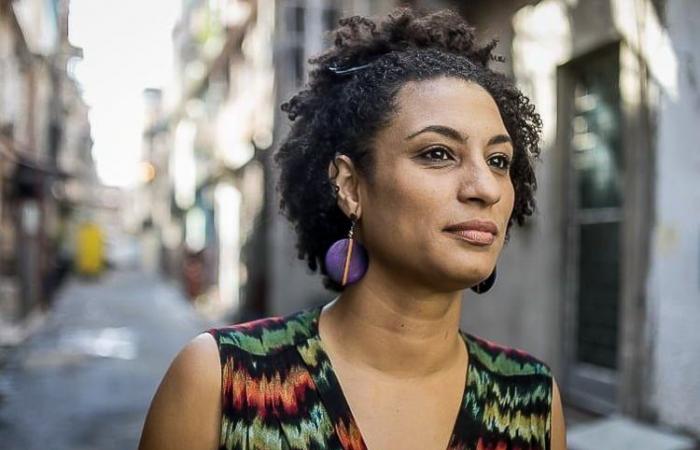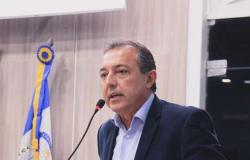By Guilherme Pimentel*
The Federal Police investigations that identify those behind the murders of Marielle Franco and Anderson bring to light three truths that we can no longer ignore.
The first reveals that crime is organized within the State. Everyone involved in the murder of Marielle and Anderson are public agents. The executioner, a man trained by the State to kill, used weapons and ammunition purchased by the State.
The principals — a counselor from the Court of Auditors, a deputy and a police chief — occupy commanding positions in institutions of state power. There is no favela resident involved, there are no gangs using their own resources.
All acts were carried out within the apparatuses of a State founded on slave colonization, which historically has as its main public policy the production of violence in the peripheries against the majority of the population to extract wealth and preserve the interests of colonial elites.
Throughout the history of Brazil, many things have changed in the law, but the law was not fulfilled by itself, and we live to this day with the historical continuity of this past that is so present among us.
In fact, it is worth remembering that we have already had other opportunities to come across this truth. In the 90s, when the Civil Police itself developed work that impacted the number of kidnappings, reducing them to practically zero, police chief Hélio Luz, asked about what was done to achieve this result, explained: “the police do not kidnap more”. Hélio knew that there is no crime in Rio de Janeiro without an agreement with the police and, therefore, to create an efficient criminal policy, it is necessary to control the police.
Another brutal murder had also revealed this reality to us. In 2011, judge Patrícia Aciolly was killed by military police officers from the 7th Battalion, uncomfortable with her decisions in cases of public agents who committed violence against the population. She and her family paid the price of not accepting state violence in a society dominated by a colonial elite.
The second truth that the Marielle case reveals is the lack of credibility in the archiving of investigations into deaths involving public agents in Rio de Janeiro. These filings need to be reevaluated, and it is very likely that more issues will be brought to light.
This is because the involvement of police chief Rivaldo Barbosa, senior leader of the Civil Police at the time, in Marielle’s murder exposes what has already been denounced by a large number of human rights defenders in Rio: those who should investigate actually participate in and cover up the murders that serve political and economic interests.
There are many times when movements of mothers and families of young people killed by public agents denounce the arbitrary dismissal of homicide cases involving police officers.
Marielle herself accompanied several of these mothers. Numerous protests in the favelas, at the doors of police stations and at the doors of the Public Prosecutor’s Office show that the archives constitute a context that involves a lack of investigation, dubious or non-existent expertise, criminalization of families and survivors, the invisibility of important witnesses, threats and intimidation.
Therefore, it is essential that the reevaluation of these archives is carried out by federal forces, especially because it is not enough to analyze police work in archived investigations. It is also necessary to reevaluate the role that the Public Ministry of Rio de Janeiro has been playing in these cases.
After all, in addition to being responsible for validating or not validating filings, they are also responsible for external control of police activity. However, they were unable to continue the investigations into the Marielle case, requiring the involvement of the Federal Police to reach a result.
It is never too much to remember that another investigation revealed that, not long ago, during the Cabral government, the institutional head of the MPRJ received an “allowance”, supposedly to promote filings that threatened the then governor. In fact, the Attorney General of Justice at the time was arrested for this, but the archives of investigations that he promoted at the time were not reviewed. This error cannot be repeated, at the risk of endorsing other possible arbitrary dismissals of homicides.
The third truth that can no longer be silenced indicates that the motivation for Marielle’s murder and so many other deaths must be linked to larger political projects. Even though the media repercussion of the inquiry emphasizes the supposed motivation in an apparently local land issue, we cannot ignore the political tensions that accumulated in Rio de Janeiro in the years leading up to Marielle’s murder and that gained increasing space on the national scene.
And it was in this context that Rivaldo Barbosa took over the leadership of the Civil Police by direct recommendation of generals who commanded the federal intervention promoted by Michel Temer, who in turn took federal power after the coup against Dilma.
Now, if the federal intervention was carried out under the pretext of adjusting public security policy in Rio de Janeiro, the military’s excuse that Rivaldo’s appointment was a mere bureaucratic appointment does not work. After all, for bureaucratic appointments, federal interventions are not “necessary”.
The political figure in Rio de Janeiro who led the opposition to federal intervention was Marielle Franco. It was not for nothing that she took on the role of rapporteur for the Special Commission for municipal parliamentary oversight of the Federal Intervention. On the other hand, Rivaldo Barbosa was appointed by the intervention on the eve of the execution precisely to the position of command of the institution responsible for directing homicide investigations in the state of Rio de Janeiro.
The context highlighted by the investigation demonstrates that this was probably not a coincidence. Investigations indicate that Rivaldo had already been participating in preparatory dialogues for the crime, including indicating criteria for choosing the location and day of the murder. Then, cynically, he met with the family and promised to clarify the case.
Marielle was missed, especially by her family, friends and fellow human rights fighters. Her actions were marked by the understanding that violence and rights violations in the city are not the result of mere individual conduct, but rather a consequence of politics.
Therefore, he has always understood that through political action it is possible to oppose violence and build the guarantee of rights for the population. His murder leaves a lot of anger and sadness, but he was unable to silence his voice.
Now, with the elements revealed by the Federal Police, we have a great opportunity to deepen the investigations, review the archives of homicides during the administration of Rivaldo Barbosa and his allies, in addition to understanding the connections between the authoritarian sectors of politics, the police and the Ministry Public. We need to put an end to the death industry, this cursed mechanism that subordinates the people to the interests of mafia colonial elites.
The Marielle case today reincarnates several generations of fighters from our country, who paid with their lives for carrying forward this dream that we did not dream of alone. It is up to us, who still walk this earth, not to ignore the glaring truths that echo in the eternal voice of this woman who will never be silenced.
*Guilherme Pimentel is a popular lawyer, human rights defender and former ombudsman at the RJ Public Defender’s Office. A friend of Marielle Franco, he fought alongside her in emblematic cases, such as the Amarildo da Rocinha case.






